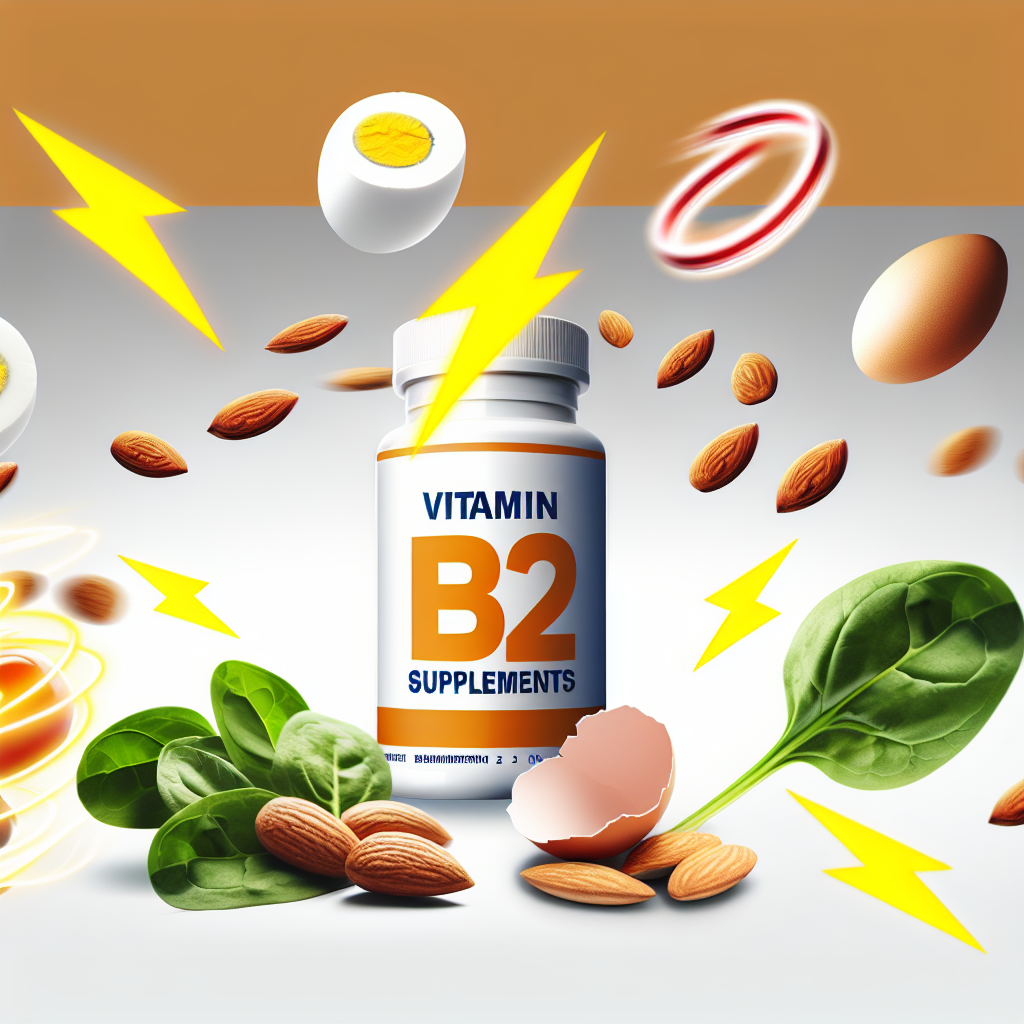Are you feeling low on energy, noticing dry skin, or experiencing eye strain? You might need more Vitamin B2, also known as riboflavin, in your diet. This essential nutrient works tirelessly behind the scenes to convert food into energy, boost your immune system, and promote glowing skin.
Whether you’re curious about its benefits, wondering how to get more through food, or suspecting a deficiency, this guide will help you understand how Vitamin B2 can transform your well-being—and why it deserves more attention in your daily routine.
What Is Vitamin B2 (Riboflavin)?
Vitamin B2, or riboflavin, belongs to the B-complex vitamin family—a group of nutrients your body depends on for energy metabolism and cellular repair. It’s a water-soluble vitamin, meaning it doesn’t get stored in your body like fat-soluble vitamins. Regular replenishment through food or supplements is essential.
Picture this: every meal you eat is broken down into energy, and riboflavin acts like the mechanic ensuring the process runs smoothly. Beyond fueling your body, it plays an important role in maintaining healthy skin, protecting vision, and fighting oxidative stress that ages your cells prematurely.
Why Vitamin B2 Matters
Key Benefits That Make Riboflavin a Wellness Staple
Vitamin B2 isn’t just about keeping your energy levels high—it impacts several areas of your health. Here are its standout benefits:
- Boosts Energy Metabolism: Riboflavin converts carbohydrates, proteins, and fats into fuel, ensuring your body performs optimally.
- Promotes Healthy Skin: Dryness, cracking, and inflammation? Riboflavin supports tissue repair and helps protect against oxidative damage.
- Protects Your Eyes: Sensitive to light or struggling with blurry vision? Riboflavin contributes to strong, healthy eyesight and guards against cataracts.
- Fights Free Radicals: This antioxidant shields your body from oxidative stress, helping cells stay resilient.
- Supports Migraine Relief: Riboflavin supplementation has been linked to reduced frequency and severity of migraines in research studies.
Simple changes like increasing riboflavin-rich foods in your diet can lead to noticeable improvements in multiple areas of your health.
Best Food Sources of Vitamin B2
Where to Find Riboflavin in Everyday Foods
Fortunately, riboflavin is widely available in many foods, making it easier to meet your nutritional needs. Here are some common sources:
- Dairy Products: Milk, cheese, and yogurt are excellent choices to boost riboflavin intake.
- Eggs and Lean Meats: Eggs, turkey, chicken, and beef provide protein along with high riboflavin content.
- Plant-Based Options: Spinach, broccoli, mushrooms, almonds, quinoa, and avocado offer great alternatives for vegetarians and vegans.
- Fortified Cereals: Many breakfast cereals contain riboflavin—check the label for confirmation.
- Whole Grains: Brown rice, oats, and whole grain bread contribute riboflavin as well as fiber to your meals.
Easy Ways to Incorporate Riboflavin Into Your Diet
Adding riboflavin-rich foods doesn’t have to be complicated. For a nutrient-packed breakfast, blend spinach and almond butter into a smoothie. Another great option is tossing mushrooms into pasta or stir-fried dishes for an easy dinner.
Recognizing Signs of a Vitamin B2 Deficiency
What Happens If You Don’t Get Enough Riboflavin?
While most people consume enough riboflavin through a balanced diet, deficiencies can happen, particularly for those with restricted diets or absorption issues. Here are common warning signs:
- Physical Symptoms: Cracked lips, dry or peeling skin, mouth sores, or an inflamed tongue could indicate insufficient Vitamin B2.
- Eye Problems: Blurry vision or sensitivity to light are often linked to riboflavin depletion.
- Persistent Fatigue: Feeling tired despite good sleep might mean your body isn’t producing energy effectively due to low B2 levels.
Who Is Most at Risk?
Certain demographics are more likely to face riboflavin deficiencies, including vegetarians, vegans, pregnant or breastfeeding individuals, and those with digestive conditions like celiac disease or IBS. If you suspect a deficiency, a blood test and consultation with your healthcare provider can help you determine the best course of action.
Daily Riboflavin Recommendations
How Much Vitamin B2 Do You Need?
The recommended daily allowance (RDA) for riboflavin varies:
- Men: 1.3 mg/day
- Women: 1.1 mg/day
- Pregnant/Breastfeeding Individuals: Slightly higher intake is often required.
Most people can meet these needs through food alone, but supplements may help during periods of high demand, such as pregnancy or intense physical activity.
Should You Consider Supplements?
Riboflavin supplements are available and often included in B-complex vitamins. While they’re generally safe, a harmless side effect to watch for is bright yellow urine, which stems from high doses. Always consult your healthcare provider before starting supplements.
Frequently Asked Questions About Vitamin B2
Your Most Common Questions Answered
- Can Vitamin B2 improve skin conditions like dryness or irritation? Yes, riboflavin supports tissue repair and protects skin from oxidative stress, which helps improve dryness and inflammation.
- Is riboflavin safe during pregnancy? Absolutely. Your body requires more riboflavin during pregnancy to meet increased energy demands. Consult your doctor for tailored recommendations.
- Does Vitamin B2 work with other nutrients? Riboflavin works synergistically with other B-vitamins like B6 and B12 to amplify their impact on energy production and overall health.
Conclusion
Vitamin B2, or riboflavin, is an essential nutrient that supports energy production, promotes healthy skin, protects your eyes, and even shields your cells from oxidative damage. Incorporating riboflavin-rich foods like spinach, eggs, mushrooms, and fortified cereals into your diet is an easy and effective way to ensure you meet your body’s daily needs.
Small changes to your diet can deliver big health improvements. Take a moment to reassess your intake and adjust accordingly. If you suspect a deficiency or have specific health concerns, consult a healthcare professional for personalized guidance. Your energy, skin, and overall well-being deserve the best care.
